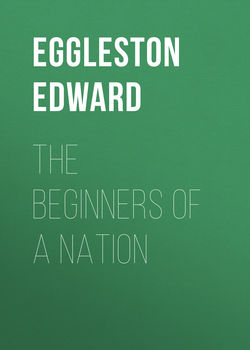Читать книгу The Beginners of a Nation - Eggleston Edward - Страница 33
BOOK I.
RISE OF THE FIRST ENGLISH COLONY
CHAPTER THE THIRD.
THE PROCESSION OF MOTIVES
V
ОглавлениеTobacco. Against tobacco King James had written a book. A Covnter-Blaste to Tobacco, 1604. It was denounced in Parliament and regarded by all public-spirited men as an evil. Nevertheless, it turned the scale and saved the colony. In colony-planting the problem is fundamentally an economic one, and economic problems are solved by coarse and homely means. 31 John Rolfe, the first Englishman that ventured to wed an Indian, planted the first tobacco at Jamestown in 1612, and by 1616 the better West India variety had perhaps been substituted for the harsh kind grown by the Virginia Indians, and by them called "uppowoc" or "apooke." Tobacco prospered and was profitable, to the disgust of the pedantic king and the sorrow of all who had cherished hopes of beautiful products from a colony upon which so much poetic sentiment had been lavished. Neither gold nor spices came as had been expected; the strings of pearls seen by Ralegh's men were not again to be found, or were perhaps transformed on investigation into wampum beads; the silver mine once discovered on the upper James had vanished forever; tropical fruits refused to grow; even madder and woad failed, and, though the indigo plant would readily mature, nobody knew how to manufacture the dye. Silk was troublesome and unprofitable, shipbuilding, and such coarse but patriotic products as naval stores had come to naught. But the detestable "weed," as King James had dubbed it, throve apace. As early as 1617 the waste margins of the broad streets of Jamestown were planted with it by the eager settlers. The English merchants grasped at the profits of it, the farmers of the customs rejoiced in the heavy duties imposed on it, and a powerful mercenary interest in the prosperity of Virginia was established. 32 By 1624, when the Virginia Company was dissolved, the danger that the colony would be abandoned as a result of Spanish intrigues, Indian massacres, or prolonged discouragement had passed away. Public spirit, patriotism, and religious enthusiasm no longer guarded it as a feeble house plant. It had struck root in the outdoor soil of human self-interest and its life was assured. From that time the colony that had been for seventeen years a fairyland to dreamers in England and a perdition to its inhabitants, became a sober money-making enterprise, uninteresting to enthusiasts and philanthropists. 33
31
The raising of tobacco in Virginia was one of the earliest projects entertained. "We can send … tobacco after a yeare or two, five thousand pounds a yeare." Description of the Now-discovered river and Country of Virginia, with the Liklyhood of ensuing Ritches by England's Ayd and Industry, May 21, 1607. Public Record Office, printed in Transactions of the American Antiquarian Society, iv, 59, 62. The paper is supposed to be from the pen of Captain Gabriel Archer.
32
In 1604 the king had, by a royal commission addressed to "our treasurer of England," arbitrarily raised the duty on tobacco from twopence a pound to six shillings tenpence. He was probably moved to make this surprising change by his antipathy to tobacco; but by increasing the profits of the farmers of customs and monopolists of tobacco, he no doubt contributed to that abandonment of Virginia to tobacco raising which seemed to him so lamentable. The use of Spanish tobacco in England was general before that from Virginia began to take its place. Barnabee Rich says, in 1614: "I have heard it tolde that now very lately there hath bin a cathologue taken of all those new erected houses that have set vppe that trade of selling tobacco in London, ande neare about London, and if a man may beleeue what is confidently reported, there are found to be vpward of 7000 houses that doth liue by that trade." He says such shops were "almost in euery lane and in euery by-corner round about London." The Honestie of this Age, p. 30.
33
The MS. records of the Virginia Company and the State papers relating to Virginia in the Public Record Office, London, are the most important authorities on the subjects treated in the text. On the commodities attempted at the outset, Manuscript Book of Instructions, Library of Congress, the first volume of Hening's Statutes, passim, and Purchas, pp. 1777-1786, passim. On the inferiority of the Indian tobacco, see Strachey, p. 121.
